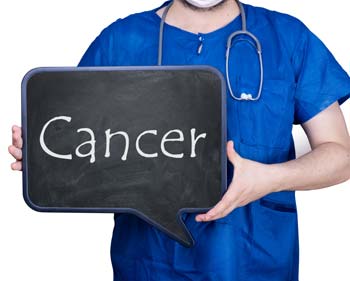Why Is There Steep Climb In Under-50s Cancer Cases? Know What Study Says

New Delhi: The number of under-50 people worldwide being diagnosed with cancer has risen by nearly 80% in three decades, according to the largest study of its kind, with more than 1 million people in that age group dying of cancer every year. Global cases of early-onset cancer increased from 1.82 in 1990 to 3.26m in 2019, while cancer deaths of adults in their 40s, 30s, or younger grew by 27%, the research reveals.

However, experts are still in the early stages of understanding the reasons behind the rise in cases.
The authors of the study, published in BMJ Oncology, said poor diets, alcohol, and tobacco use, physical inactivity, and obesity were probably among the factors, and that since 1990, the incidence and deaths of early onset cancers have substantially increased globally, according to The Guardian.
The study, led by the University of Edinburgh and Zhejiang University School of Medicine in Hangzhou, China, was the first of its kind to examine the issue on a global scale and the risk factors for younger adults.
In this global study, researchers analysed data from 204 countries covering 29 types of cancer. They looked at new cases, deaths, health consequences, and contributory risk factors for people aged 14 to 49 to estimate changes between 1990 and 2019.
In 2019, new cancer diagnoses among under-50s totalled 3.26m, an increase of 79% on the 1990 figure. Breast cancer accounted for the largest number of cases and associated deaths, at 13.7 and 3.5 for every 100,000 of the global population respectively.
Cases of early onset windpipe and prostate cancers rose the fastest between 1990 and 2019, with estimated annual percentage changes of 2.28% and 2.23% respectively. At the other end of the spectrum, cases of early-onset liver cancer fell by an estimated 2.88% a year.
A total of 1.06m under-50s died of cancer in 2019, an increase of 27% on the 1990 figure. After breast cancer, the highest death tolls were linked to windpipe, lung, stomach, and bowel cancers.
The steepest increases in deaths were among people with kidney or ovarian cancer.
The highest rates of early-onset cancers in 2019 were in North America, Oceania and Western Europe. Low- and middle-income countries were also affected, and the highest death rates among under-50s were in Oceania, Eastern Europe and Central Asia.
In low- and middle-income countries, early-onset cancer had a much greater impact on women than on men, in terms of poor health and deaths.
Based on the observed trends for the past three decades, the researchers estimate that the global number of new early onset cancer cases and associated deaths will rise by a further 31% and 21% respectively by 2030, with people in their 40s the most at risk.
Genetic factors are likely to have a role but diets high in red meat and salt and low in fruit and milk, along with alcohol and tobacco use, are the main risk factors underlying the most common cancers among the under-50s, with physical inactivity, excess weight and high blood sugar contributory factors, according to researchers.
Dr Xue Li, study author, from the Centre for Global Health at the University of Edinburgh’s Usher Institute was quoted as saying, ‘There is currently a scarcity of research on the factors contributing to early-onset cancer. The hypotheses we’ve put forth are drawn from existing data and literature. Still, the potential influence of factors like air pollution, climate change, or birth cohort effects on the rising trend of cancer in young individuals has not been thoroughly explored.’
“We advocate for increased attention from researchers and enhanced funding support. This will facilitate a better understanding of the underlying causes of this phenomenon and, in turn, help mitigate the societal, economic, and familial challenges posed by early-onset cancer,” he added.

Comments are closed.